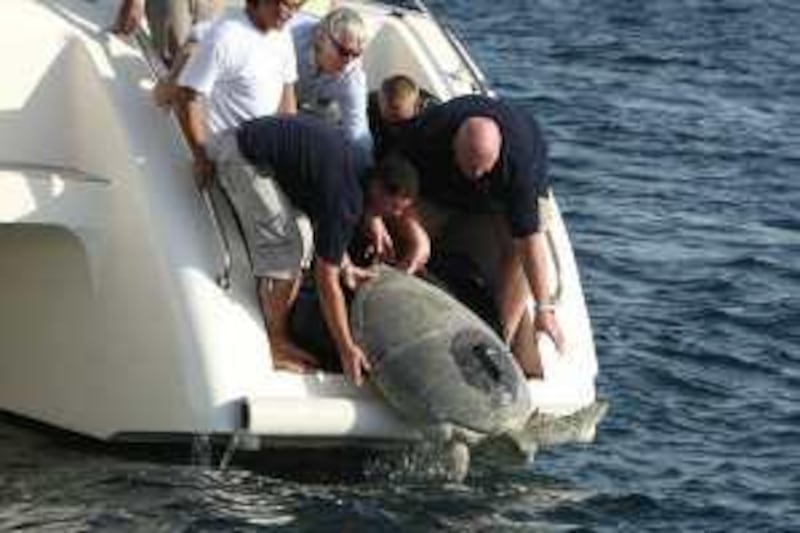DUBAI // Scientists at a special rehabilitation centre aim to keep very close tabs on a former patient after bidding her bon voyage yesterday afternoon. Experts at the Madinat Jumeirah Turtle Rehabilitation are hoping Jade, a 40-year-old green turtle, will provide vital information about her travels and the habitats she encounters. And yesterday, even as the 150kg turtle swam off into the blue for the first time since February, a satellite tag attached to her shell began to transmit valuable data. "We have only tagged two other turtles before," said Kevin Hyland, who runs the rehabilitation centre and also works for the Wildlife Protection Office.
The first, called Maju, was released in February 2005 but the animal's transmitter stopped working two months later. A year later another turtle, Dibba, was released and swam from Fujairah to Thailand over a period of eight months before her device stopped transmitting data. The devices usually keep transmitting for about six months. It is well known that turtles migrate thousands of kilometres between their feeding grounds and mating and nesting areas, but much about their movements remains a mystery, said Nancy Papathanasopoulou, the adviser to the Masirah Turtle Conservation Project on Masirah Island off the coast of Oman.
"The only way to reveal the secrets of where they go, what they eat and how deep they dive is to attach a satellite transmitter," she said. Turtles are what scientists call an "indicator" species, so knowing more about their migration routes can reveal a valuable picture of the overall health of the oceans they move in. "Wherever turtles go, there is good water quality and healthy reefs," she said.
Back in February, Jade was found washed up on a beach at the Palm Jebel Ali with what appeared to be a serious infection, said Warren Baverstock, aquarium operations manager at the Burj Al Arab. She was given antibiotics and over the months nursed back to health. Yesterday, a further 17 younger animals were released alongside Jade, some 12 kilometres out to sea, although they were not fitted with transmitters.
vtodorova@thenational.ae






